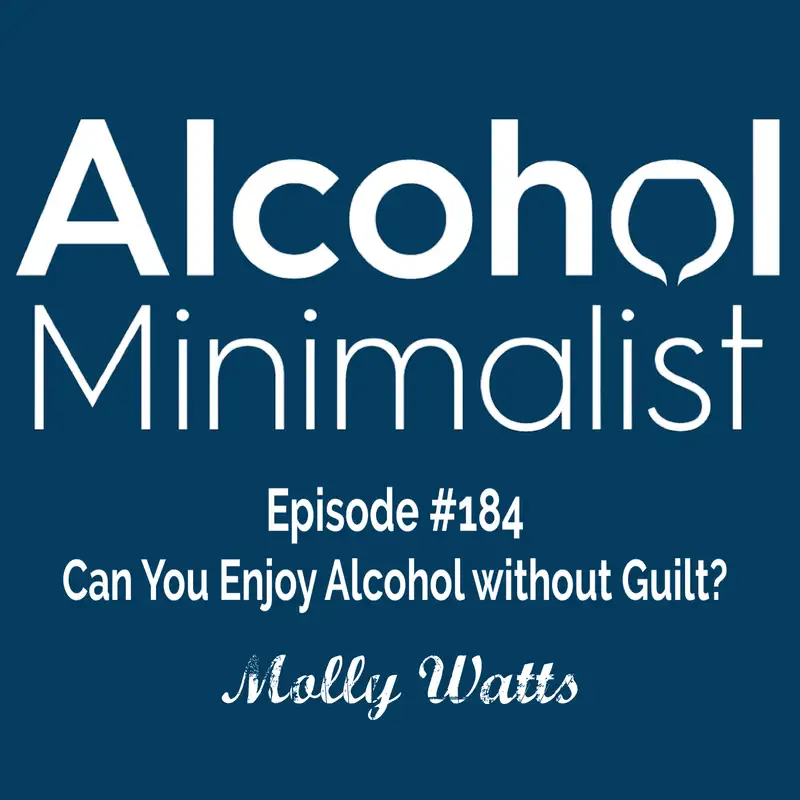Can You Enjoy Alcohol without Guilt?
This week on the podcast, I'm talking about how to enjoy alcohol without guilt. When people are working on changing their drinking habits, it's very common to feel guilty about wanting to be "able to drink". We're breaking it all down and helping you focus your brain on all the positives that come from creating and keeping plans around alcohol.
Resources Mentioned:
Moderation Management's Moderation Mindset Summit
Chasing the Buzz Episode #126
New to the podcast? Download the Podcast Listening Guide.
Want to schedule a call to talk about how I work with people? Click here for a FREE call.
Join my private FB group Alcohol Minimalists here: https://www.facebook.com/groups/changeyouralcoholhabit
Resources Mentioned:
Moderation Management's Moderation Mindset Summit
Chasing the Buzz Episode #126
New to the podcast? Download the Podcast Listening Guide.
Want to schedule a call to talk about how I work with people? Click here for a FREE call.
Join my private FB group Alcohol Minimalists here: https://www.facebook.com/groups/changeyouralcoholhabit
Has this podcast helped you? Please leave a review.
Follow me on Facebook & Instagram: @AlcoholMinimalist
Low risk drinking guidelines from the NIAAA:
Healthy men under 65:
No more than 4 drinks in one day and no more than 14 drinks per week.
Healthy women (all ages) and healthy men 65 and older:
No more than 3 drinks in one day and no more than 7 drinks per week.
No more than 3 drinks in one day and no more than 7 drinks per week.
One drink is defined as 12 ounces of beer, 5 ounces of wine, or 1.5 ounces of 80-proof liquor. So remember that a mixed drink or full glass of wine are probably more than one drink.
Abstinence from alcohol
Abstinence from alcohol is the best choice for people who take medication(s) that interact with alcohol, have health conditions that could be exacerbated by alcohol (e.g. liver disease), are pregnant or may become pregnant or have had a problem with alcohol or another substance in the past.
Abstinence from alcohol is the best choice for people who take medication(s) that interact with alcohol, have health conditions that could be exacerbated by alcohol (e.g. liver disease), are pregnant or may become pregnant or have had a problem with alcohol or another substance in the past.
Benefits of “low-risk” drinking
Following these guidelines reduces the risk of health problems such as cancer, liver disease, reduced immunity, ulcers, sleep problems, complications of existing conditions, and more. It also reduces the risk of depression, social problems, and difficulties at school or work.
Following these guidelines reduces the risk of health problems such as cancer, liver disease, reduced immunity, ulcers, sleep problems, complications of existing conditions, and more. It also reduces the risk of depression, social problems, and difficulties at school or work.

